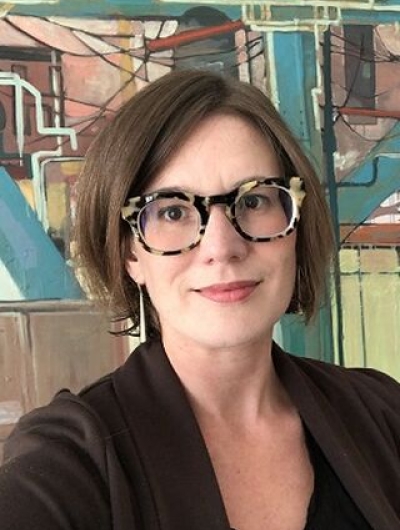People

Rebecca Mueller, PhD, LCGC
Rebecca Mueller, PhD, LCGC
Director of Research
Dr. Mueller is the Director of Research for the MSGC Program and the Advanced Research Training Program for Genetic Counselors Certificate Program. She is also the course instructor for the GENC 6140 Introduction to Genetic Counseling Research course.
Dr. Mueller received her BA in American Studies from Barnard College, an MS in Genetic Counseling from Arcadia University, a PhD in History and Sociology of Science from the University of Pennsylvania, and a T32 postdoctoral fellowship in the Ethical, Legal, and Social Implications of Genetics and Genomics, also at the University of Pennsylvania. Dr. Mueller worked as a Cancer Genetic Counselor at Pennsylvania Hospital and Penn’s Basser Center for BRCA, serving as Basser’s inaugural outreach coordinator and as a research genetic counselor on studies of alternative service delivery models for genetic counseling. She also serves on the Advisory Committee for the Warren Alpert Foundation’s Alliance to Increase Diversity in Genetic Counseling grant and on the Ethics Committee of the American Society for Gene and Cell Transfer.
Dr. Mueller’s research focuses primarily on the experience of adults with childhood-onset genetic conditions. Her doctoral research used cystic fibrosis as a case study of new diagnostic technologies, risk, and community and was awarded the Jack D. Pressman-Burroughs Wellcome Career Development Award in 20th Century History of Medicine or Biomedical Sciences in 2022.
Dr. Mueller’s research uses a disability lens to explore the ethical and social implications of prognostic uncertainty in genetics by focusing on the experiences of adults with childhood-onset genetic conditions that have shifting prognostic implications such as cystic fibrosis, spinal muscular atrophy, and beta thalassemia major. She developed the concept of prognostic imagination which denotes what individuals can envision, fear, dream, or plan for their lives in light of diagnostic or prognostic information and it guides her research on how adults with childhood-onset genetic conditions plan for the future amid therapeutic innovation.
Dr. Mueller has also collaborated on studies of alternative service delivery models for genetic counseling, curricular issues in genetic counseling, and social and ethical implications of integrating genomic technologies into pediatric and neonatal care.
Dr. Mueller has been involved with the MSGC program as an instructor and thesis mentor since 2014 and joined the program as Director of Research in July 2024.